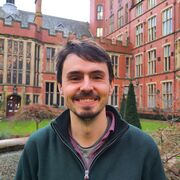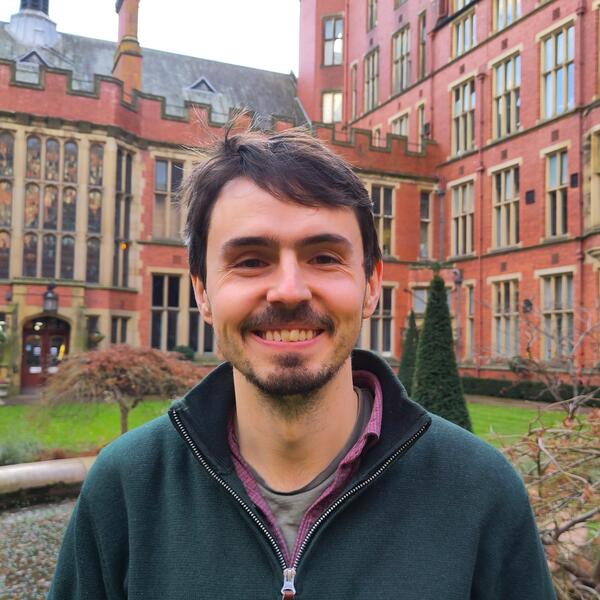Dr Oliver Meacock
School of Biosciences
Early Career Research Fellow


Full contact details
School of Biosciences
Firth Court
Western Bank
Sheffield
S10 2TN
- Profile
-
2024 - Present: Early-career research fellow in School of Biosciences, University of Sheffield
2021-2024: HFSP long-term fellow in Department of Fundamental Microbiology, University of Lausanne
2019-2021: Research associate in Department of Physics and Astronomy, University of Sheffield
2014-2019: DPhil in Department of Zoology, University of Oxford (Life Sciences Interface DTC)
- Research interests
-
Microbial communities are a foundational layer of life on Earth, performing roles such as recycling, pest control and fuel production. The composition of microbial communities determines their functional properties: for example, the presence of a pathogen in the gut microbiome can severely impact the health of the host, while the loss of nitrogen-fixing bacteria from the soil can greatly reduce crop yields. How this composition changes, i.e. via the invasion or extinction of species in a community, is at its heart an ecological question. Yet the mechanisms that drive these changes - such as the secretion of toxins or competition for resources - are the realm of molecular biology.
I use maths as a bridge between these two worlds, aiming to understand how physical limits imposed by molecular biology shape and constrain the ecology of microbial ecosystems. I am also working to apply this theory to practical questions, developing high-throughput methods based on microdroplet technology to understand the dependence of ecological quantities on environmental conditions. These approaches may eventually be used to perform fine-scale manipulations of communities by tailoring their environmental conditions to exclude or include functionally-important species.
In my doctoral research I explored the ecological impact of the collective motion of billions of moving bacteria when competing for space and resources. I maintain an active interest in this area.
